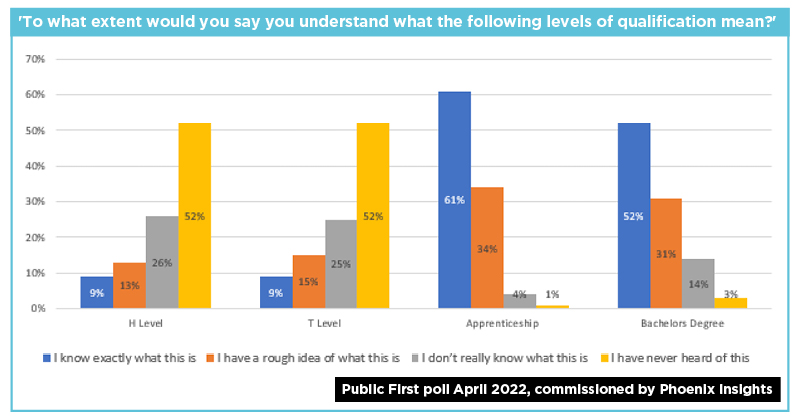The government should create a new minister for skills and youth employment role that is shared between the Departments for Education and Work and Pensions to help tackle the NEET crisis, a think tank has said.
The recommendation was made in the ‘Finding a NEET solution’ report by the education and skills think tank EDSK, which was published today.
EDSK’s paper said that on current trends it will take over 150 years before there are no longer any young people who are ‘not in education, employment or training’ (NEET) in England.
The think tank made a number of recommendations to tackle the issue, including calling for more money for the 16 to 19 bursary fund and the removal of level 7 apprenticeships from levy funding.
“After two decades of failing to make any notable progress in reducing the number of young people who become NEET after leaving school or college, it is time for government to look again at why thousands of students are still leaving our education system every year with poor academic results and low self-esteem,” said Tom Richmond, director of EDSK.
Richmond said this “failure” to engage many young people is needlessly driving some of them out of the education and training system by undermining their motivation, aspirations and confidence over the course of several years.
“It is then left to taxpayers and society to subsequently spend considerable sums of money trying to bring these young people back into the fold later,” Richmond said.
“Not only is this desperately inefficient from a public expenditure perspective, it is also a tragic waste of young people’s talents,” he added.
The paper noted that at the end of 2021 there were over 700,000 16 to 24-year-olds classified as NEET in England – equivalent to 1-in-10 young people.
“Worse still, despite endless initiatives and interventions from successive governments, the proportion of young people who are NEET after leaving school or college stands at 12.6 per cent – just 0.4 per cent lower than in 2016, and only 0.7 per cent lower than two decades earlier,” the report said.
The think tank made 14 recommendations to the government to tackle the issue, including the creation of new roles and responsibilities in government.
EDSK said that to create clearer accountability and responsibility in government for preventing young people from becoming NEET, the current role of ‘minister for skills’ at the Department for Education (DfE) should be converted into a ‘minister for skills and youth employment’. This role would be shared between the DfE and the Department for Work and Pensions (DWP).
EDSK called for the government to remove level 7 apprenticeships from the scope of the apprenticeship levy.
“The requirement for 5% ‘co-investment’ from non-levy paying employers towards the cost of training younger apprentices should be scrapped,” the report said.
The aim of this would be to stimulate more demand for, and supply of, apprenticeships for young people.
Another suggestion is for the government to create a new service called ‘CareersLink’, that would coordinate the support available to young people who are at risk of becoming NEET.
Authors of the report said that more support for young people within schools and colleges was needed. To tackle this, they argued that the 16 to 19 bursary fund should be increased from £150 million a year to £225 million a year for the start of the academic year 2022/23.
EDSK also said that financial incentives could be used to encourage more employers to recruit young people into schemes like apprenticeships, traineeships and T Levels.
“To build capacity among employers to recruit and support young people, financial incentives ranging from £500 to £5,000 should be available to organisations offering apprenticeships, traineeships and T Level placements,” the report said.
The DfE was approached for comment.





